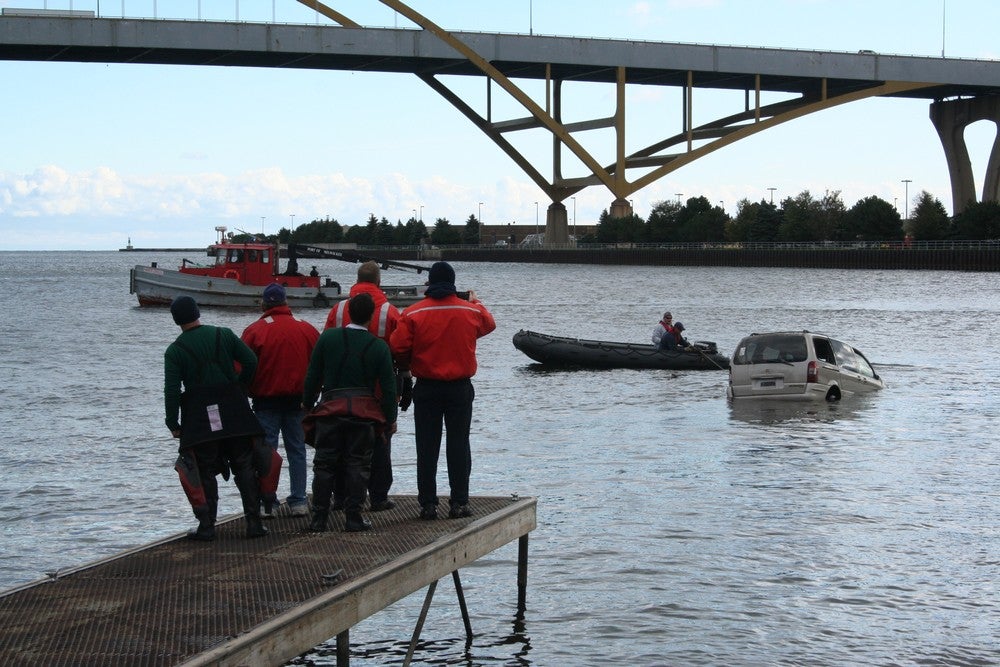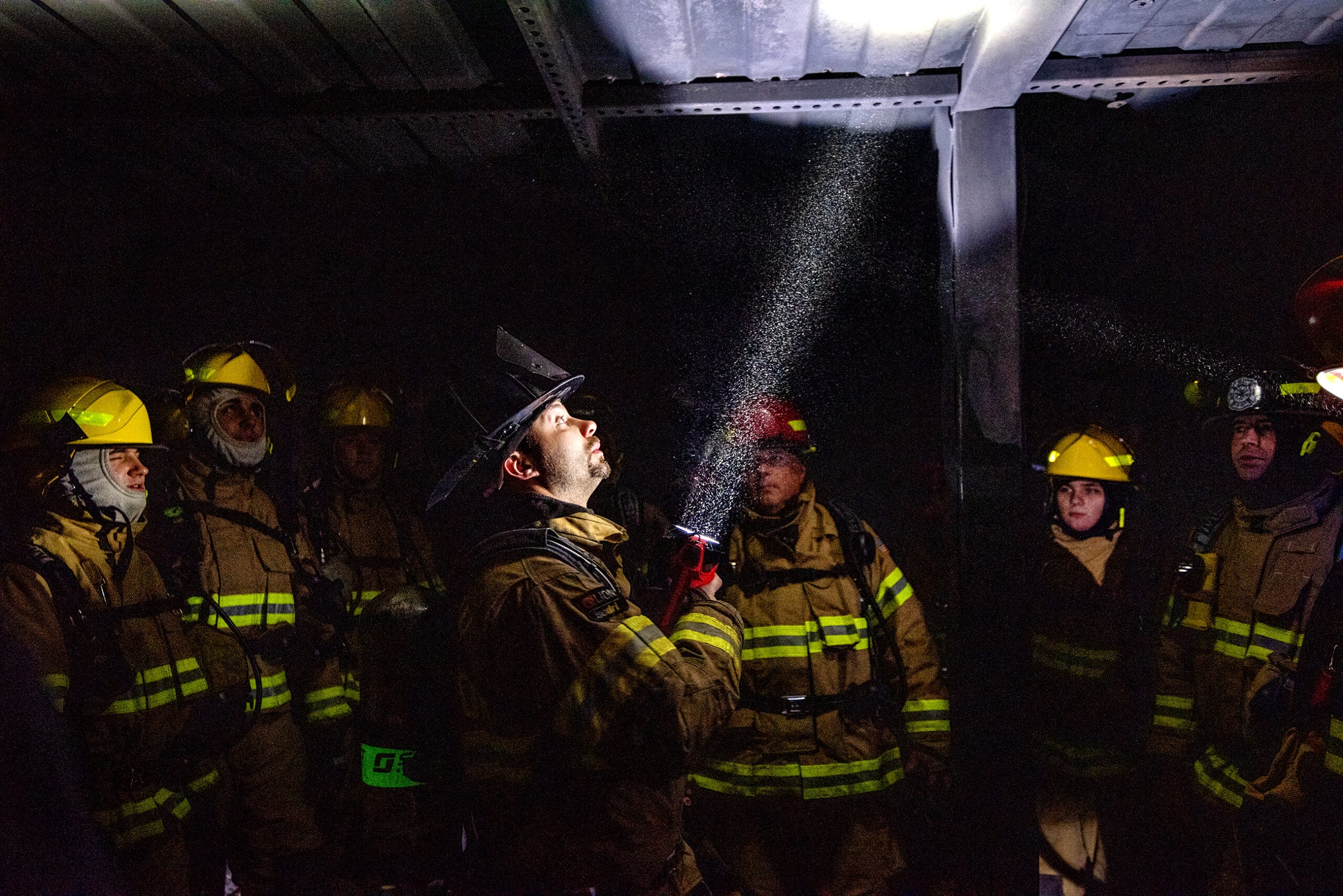Federal, state, and local officials gathered in La Crosse Wednesday to practice how they’d respond to a serious rail accident as part of a national training effort.
The scenario was this: A train has derailed on the south side of La Crosse, spilling 450,000 gallons of crude oil. Suddenly, an explosion kills residents and oil begins leaking into the Mississippi River.
The rail disaster exercise was one of three hosted across the country by the Federal Emergency Management Agency. FEMA also held a large city exercise in Jersey City, New Jersey and will hold one on tribal land in Montana. La Crosse serves as the small city example.
Stay informed on the latest news
Sign up for WPR’s email newsletter.
As part of the training, the EPA’s Paul Ruesch explains the federal agency’s involvement in past oil train derailments. Maureen McCollum/WPR
National Exercise Division Director Carla Boyce said the training in La Crosse will be used as a model for communities nationwide in an effort to improve how first responders and leaders communicate and respond to a disaster. She said that the “muscle movements” those communities need to have in their recovery efforts would be the same, “whether this was an ethanol derailment or whether there was a chemical incident on an interstate or highway.”
La Crosse officials said the training exercise was especially relevant because the city is experiencing a dramatic increase in how much crude oil travels through it by rail. BNSF Railway is also in the process of adding a second track through four miles of the city, passing through a marsh, golf course and residential areas.
La Crosse Mayor Tim Kabat said the increase has changed the way first responders prepare for a disaster, especially because the bluffs and rivers make it difficult for emergency officials to access certain areas and for residents to evacuate.
Kabat said he’s glad local officials were able to join those from the federal and state level to train for this kind of accident.
“It is a little bit scary that we have all these high risks that could impact response and all that, but what better way to look at those than to have all these agencies and groups and everybody else really picking things apart and seeing where our vulnerabilities are,” Kabat said.
The training focuses on emergency response and also helping a community recover. The recovery aspect focuses on what agencies can do to help build back a community’s infrastructure, environment and economics if a major derailment were to occur.
Wisconsin Public Radio, © Copyright 2024, Board of Regents of the University of Wisconsin System and Wisconsin Educational Communications Board.




